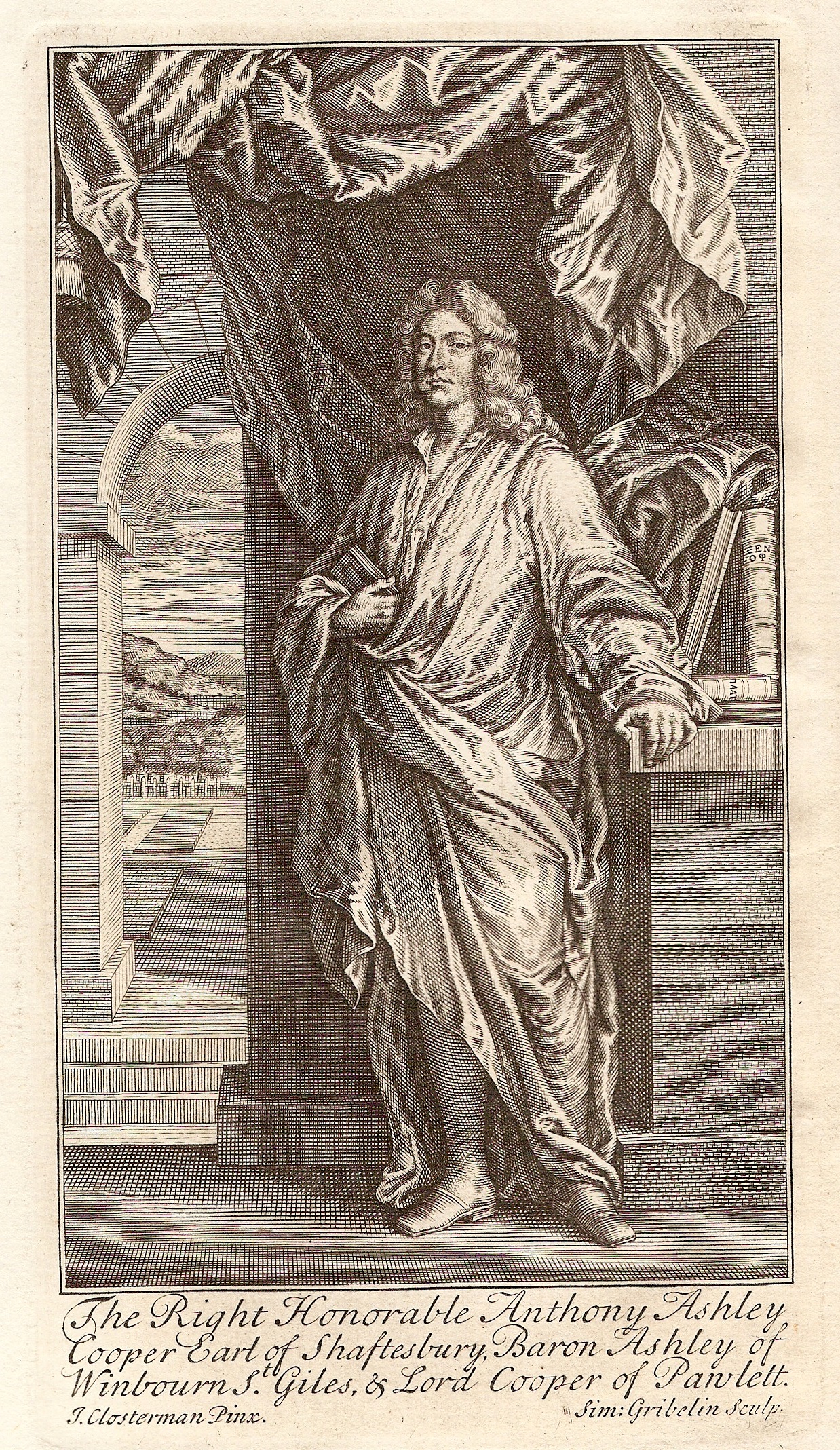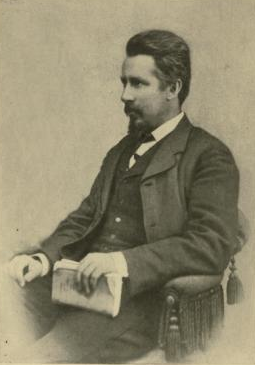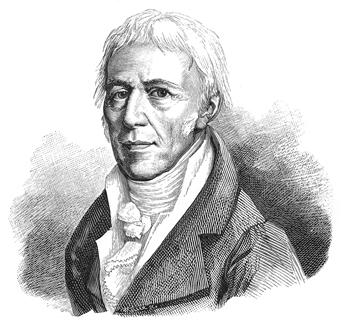|
The Pleasures Of The Imagination
''The Pleasures of the Imagination'' is a long didactic poem by Mark Akenside, first published in 1744. The first book defines the powers of imagination and discusses the various kinds of pleasure to be derived from the perception of beauty; the second distinguishes works of imagination from philosophy; the third describes the pleasure to be found in the study of man, the sources of ridicule, the operations of the mind, in producing works of imagination, and the influence of imagination on morals. The ideas were largely borrowed from Joseph Addison's essays on the imagination in ''The Spectator'' and from Lord Shaftesbury. Edward Dowden complains that "his tone is too high-pitched; his ideas are too much in the air; they do not nourish themselves in the common heart, the common life of man." Samuel Johnson praised the blank verse of the poems, but found fault with the long and complicated periods. Akenside got the idea for the poem during a visit to Morpeth in 1738. ''The Pleasur ... [...More Info...] [...Related Items...] OR: [Wikipedia] [Google] [Baidu] |
Poem
Poetry (derived from the Greek ''poiesis'', "making"), also called verse, is a form of literature that uses aesthetic and often rhythmic qualities of language − such as phonaesthetics, sound symbolism, and metre − to evoke meanings in addition to, or in place of, a prosaic ostensible meaning. A poem is a literary composition, written by a poet, using this principle. Poetry has a long and varied history, evolving differentially across the globe. It dates back at least to prehistoric times with hunting poetry in Africa and to panegyric and elegiac court poetry of the empires of the Nile, Niger, and Volta River valleys. Some of the earliest written poetry in Africa occurs among the Pyramid Texts written during the 25th century BCE. The earliest surviving Western Asian epic poetry, the ''Epic of Gilgamesh'', was written in Sumerian. Early poems in the Eurasian continent evolved from folk songs such as the Chinese ''Shijing'', as well as religious hymns (the Sanskrit ' ... [...More Info...] [...Related Items...] OR: [Wikipedia] [Google] [Baidu] |
Mark Akenside
Mark Akenside (9 November 1721 – 23 June 1770) was an English poet and physician. Biography Akenside was born at Newcastle upon Tyne, England, the son of a butcher. He was slightly lame all his life from a wound he received as a child from his father's cleaver. All his relations were Dissenters, and, after attending the Royal Free Grammar School of Newcastle, and a dissenting academy in the town, he was sent in 1739 to the University of Edinburgh to study theology with a view to becoming a minister, his expenses being paid from a special fund set aside by the dissenting community for the education of their pastors. He had already contributed ''The Virtuoso, in imitation of Spenser's style and stanza'' (1737) to the ''Gentleman's Magazine'', and in 1738 ''A British Philippic, occasioned by the Insults of the Spaniards, and the present Preparations for War'' (also published separately). After one winter as a theology student, Akenside changed to medicine as his field o ... [...More Info...] [...Related Items...] OR: [Wikipedia] [Google] [Baidu] |
1744 In Poetry
Nationality words link to articles with information on the nation's poetry or literature (for instance, Irish or France). Events Works published Colonial America * John Armstrong, ''The Art of Preserving Health''Ludwig, Richard M., and Clifford A. Nault, Jr., ''Annals of American Literature: 1602–1983'', 1986, New York: Oxford University Press * Mather Byles, ''Poems on Several Occasions'', 31 poems written since 1727; he wrote a range of poetic forms in formal, neoclassical verse influenced by Alexander PopeBurt, Daniel S.''The Chronology of American Literature: : America's literary achievements from the colonial era to modern times'' Houghton Mifflin Harcourt, 2004, , retrieved via Google Books * James Logan, ''Cicero's Cato Major'', a verse translation * Jane Turell, ''Memoirs'', a collection of pious poems already published as ''Reliquiae Turellae'' together with secular verses (posthumous) United Kingdom * Anonymous, ''Tommy Thumb's Pretty Song Book'', the first e ... [...More Info...] [...Related Items...] OR: [Wikipedia] [Google] [Baidu] |
Joseph Addison
Joseph Addison (1 May 1672 – 17 June 1719) was an English essayist, poet, playwright and politician. He was the eldest son of The Reverend Lancelot Addison. His name is usually remembered alongside that of his long-standing friend Richard Steele, with whom he founded '' The Spectator'' magazine. His simple prose style marked the end of the mannerisms and conventional classical images of the 17th century. Life and work Background Addison was born in Milston, Wiltshire, but soon after his birth his father, Lancelot Addison, was appointed Dean of Lichfield and the family moved into the cathedral close. His father was a scholarly English clergyman. Joseph was educated at Charterhouse School, London, where he first met Richard Steele, and at The Queen's College, Oxford. He excelled in classics, being specially noted for his Latin verse, and became a fellow of Magdalen College. In 1693, he addressed a poem to John Dryden, and his first major work, a book of the lives ... [...More Info...] [...Related Items...] OR: [Wikipedia] [Google] [Baidu] |
The Spectator (1711)
''The Spectator'' was a daily publication founded by Joseph Addison and Richard Steele in England, lasting from 1711 to 1712. Each "paper", or "number", was approximately 2,500 words long, and the original run consisted of 555 numbers, beginning on 1 March 1711. These were collected into seven volumes. The paper was revived without the involvement of Steele in 1714, appearing thrice weekly for six months, and these papers when collected formed the eighth volume. Eustace Budgell, a cousin of Addison's, and the poet John Hughes also contributed to the publication. Aims In Number 10, Mr. Spectator states that ''The Spectator'' will aim "to enliven morality with wit, and to temper wit with morality". The journal reached an audience of thousands of people every day, because "the ''Spectators'' was something that every middle-class household with aspirations to looking like its members took literature seriously would want to have." He hopes it will be said he has "brought philoso ... [...More Info...] [...Related Items...] OR: [Wikipedia] [Google] [Baidu] |
Anthony Ashley-Cooper, 3rd Earl Of Shaftesbury
Anthony Ashley Cooper, 3rd Earl of Shaftesbury (26 February 1671 – 16 February 1713) was an English politician, philosopher, and writer. Early life He was born at Exeter House in London, the son of the future Anthony Ashley Cooper, 2nd Earl of Shaftesbury and his wife Lady Dorothy Manners, daughter of John Manners, 8th Earl of Rutland. Letters sent to his parents reveal emotional manipulation attempted by his mother in refusing to see her son unless he cut off all ties to his father. At the age of three Ashley-Cooper was made over to the formal guardianship of his grandfather Anthony Ashley Cooper, 1st Earl of Shaftesbury. John Locke, as medical attendant to the Ashley household, was entrusted with the supervision of his education. It was conducted according to the principles of Locke's '' Some Thoughts Concerning Education'' (1693), and the method of teaching Latin and Greek conversationally was pursued by his instructress, Elizabeth Birch. At the age of eleven, it is ... [...More Info...] [...Related Items...] OR: [Wikipedia] [Google] [Baidu] |
Edward Dowden
Edward Dowden (3 May 18434 April 1913) was an Irish critic, professor, and poet. Biography He was the son of John Wheeler Dowden, a merchant and landowner, and was born at Cork, three years after his brother John, who became Bishop of Edinburgh in 1886. Edward's literary tastes emerged early, in a series of essays written at the age of twelve. His home education continued at Queen's College, Cork and at Trinity College, Dublin. He contributed to the literary magazine '' Kottabos.'' He had a distinguished career, becoming president of the Philosophical Society, and won the vice-chancellor's prize for English verse and prose, and the first senior moderatorship in ethics and logic. In 1867 he was elected professor of oratory and English literature in Dublin University. Dowden's first book, ''Shakspere: A Critical Study of His Mind and Art'' (1875),Dowden 1875, ''Shakspere: A Critical Study of His Mind and Art'': Online editionin HathiTrust Digital Library. resulted from a ... [...More Info...] [...Related Items...] OR: [Wikipedia] [Google] [Baidu] |
Samuel Johnson
Samuel Johnson (18 September 1709 – 13 December 1784), often called Dr Johnson, was an English writer who made lasting contributions as a poet, playwright, essayist, moralist, critic, biographer, editor and lexicographer. The ''Oxford Dictionary of National Biography'' calls him "arguably the most distinguished man of letters in English history". Born in Lichfield, Staffordshire, he attended Pembroke College, Oxford until lack of funds forced him to leave. After working as a teacher, he moved to London and began writing for ''The Gentleman's Magazine''. Early works include '' Life of Mr Richard Savage'', the poems ''London'' and ''The Vanity of Human Wishes'' and the play ''Irene''. After nine years' effort, Johnson's '' A Dictionary of the English Language'' appeared in 1755, and was acclaimed as "one of the greatest single achievements of scholarship". Later work included essays, an annotated '' The Plays of William Shakespeare'', and the apologue '' The History of ... [...More Info...] [...Related Items...] OR: [Wikipedia] [Google] [Baidu] |
Morpeth, Northumberland
Morpeth is a historic market town in Northumberland, North East England, lying on the River Wansbeck. Nearby towns include Ashington and Bedlington. In the 2011 census, the population of Morpeth was given as 14,017, up from 13,833 in the 2001 census. The earliest evidence of settlement is believed to be from the Neolithic period, and some Roman artifacts have also been found. The first written mention of the town is from 1080, when the de Merlay family was granted the barony of Morpeth. The meaning of the town's name is uncertain, but it may refer to its position on the road to Scotland and a murder which occurred on that road. The de Merlay family built two castles in the town in the late 11th century and the 13th century. The town was granted its coat of arms in 1552. By the mid 1700s it had become one of the main markets in England, having been granted a market charter in 1200, but the opening of the railways in the 1800s led the market to decline. The town's history is c ... [...More Info...] [...Related Items...] OR: [Wikipedia] [Google] [Baidu] |
1738 In Poetry
Nationality words link to articles with information on the nation's poetry or literature (for instance, Irish or France). Events * During a visit to Morpeth this year, poet Mark Akenside gets the idea for his long didactic poem, '' The Pleasures of the Imagination'', published in 1744. Works published United Kingdom * Mark Akenside, ''A British Philippic'', published anonymouslyCox, Michael, editor, ''The Concise Oxford Chronology of English Literature'', Oxford University Press, 2004, * John Banks, ''Miscellaneous Works in Verse and Prose'' * Mather Byles, ''On the Death of the Queen'', English, Colonial AmericaLudwig, Richard M., and Clifford A. Nault, Jr., ''Annals of American Literature: 1602–1983'', 1986, New York: Oxford University Press * Elizabeth Carter, ''Poems Upon Particular Occasions'', published anonymously * Robert Dodsley, ''The Art of Preaching'', published anonymously * John Gay, ''Fables: Volume the Second'' (see also ''Fables'' 1727) * Samuel Johnso ... [...More Info...] [...Related Items...] OR: [Wikipedia] [Google] [Baidu] |
1744 Books
Events January–March * January 6 – The Royal Navy ship ''Bacchus'' engages the Spanish Navy privateer ''Begona'', and sinks it; 90 of the 120 Spanish sailors die, but 30 of the crew are rescued. * January 24 – The Dagohoy rebellion in the Philippines begins, with the killing of Father Giuseppe Lamberti. * February – Violent storms frustrate a planned French invasion of Britain. * February 22– 23 – Battle of Toulon: The British fleet is defeated by a joint Franco-Spanish fleet. * March 1 (approximately) – The Great Comet of 1744, one of the brightest ever seen, reaches perihelion. * March 13 – The British ship ''Betty'' capsizes and sinks off of the Gold Coast (modern-day Ghana) near Anomabu. More than 200 people on board die, although there are a few survivors. * March 15 – France declares war on Great Britain. April–June * April – '' The Female Spectator'' (a monthly) is founded by Eliza Haywood in ... [...More Info...] [...Related Items...] OR: [Wikipedia] [Google] [Baidu] |
1744 Poems
Events January–March * January 6 – The Royal Navy ship ''Bacchus'' engages the Spanish Navy privateer ''Begona'', and sinks it; 90 of the 120 Spanish sailors die, but 30 of the crew are rescued. * January 24 – The Dagohoy rebellion in the Philippines begins, with the killing of Father Giuseppe Lamberti. * February – Violent storms frustrate a planned French invasion of Britain. * February 22– 23 – Battle of Toulon: The British fleet is defeated by a joint Franco-Spanish fleet. * March 1 (approximately) – The Great Comet of 1744, one of the brightest ever seen, reaches perihelion. * March 13 – The British ship ''Betty'' capsizes and sinks off of the Gold Coast (modern-day Ghana) near Anomabu. More than 200 people on board die, although there are a few survivors. * March 15 – France declares war on Great Britain. April–June * April – ''The Female Spectator'' (a monthly) is founded by Eliza Haywood in ... [...More Info...] [...Related Items...] OR: [Wikipedia] [Google] [Baidu] |
.jpg)
.jpg)






